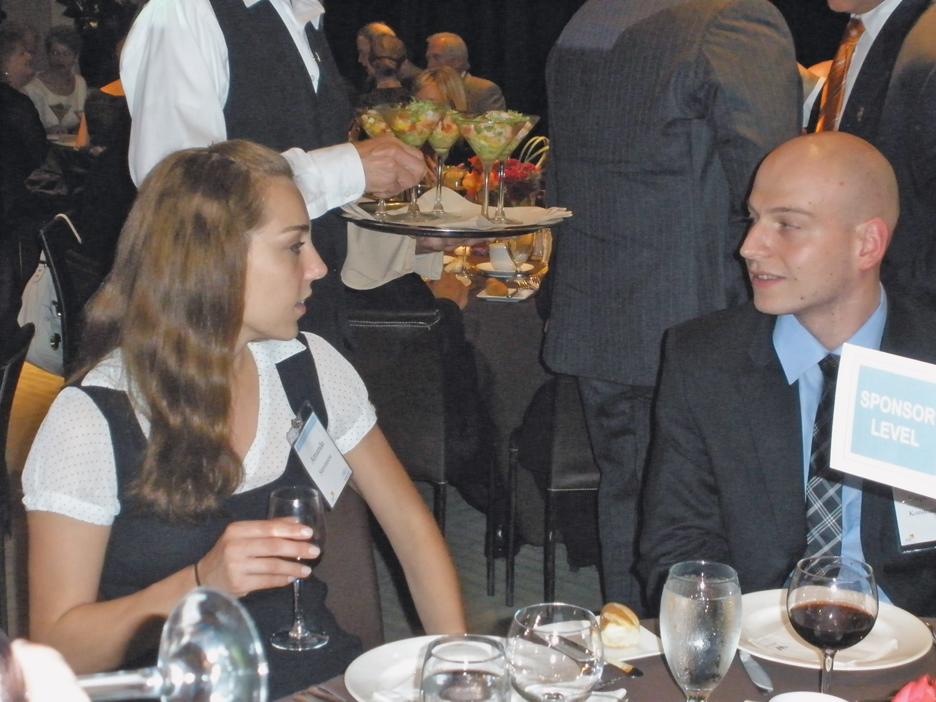Newly Founded Club Aims To Bring Awareness to Objectivism
June 28, 2011

Published: December 10, 2009
The Objectivist Club is Fordham College at Lincoln Center’s (FCLC) newest student-run organization. The club is built upon the theory of objectivism, which says that reality exists independant of consciousness and that human knowledge and values are not created by one’s thoughts, but rather by the nature of reality.
The philosophy is based on the teachings of Russian-American novelist Ayn Rand, who formulated the theory in the late 1950s.
Eugene Kondratov, FCLC ’10, a political science major and philosophy minor, is the founder and president of the Objectivist Club.
Observer: When did you decide you wanted to found an objectivist club at FCLC? What initiated your interests in founding the club?
Eugene Kondratov: I was always interested in getting more involved with the Fordham community, but I found the majority of clubs did not suit my interests. I wanted to create a club that wasn’t simply a gathering place, but what Rand might term a “value.” Its value would derive from the information it brought to the campus, allowing like-minded individuals to further their own understanding of the philosophy of objectivism and educate others. The value would be the work we put into it, and the enormous potential for growth.
O: When did you first become familiar with the philosophy of Ayn Rand?
EK: In the summer between sophomore and junior year, I visited a Web site detailing the top 100 books, according to the book publisher. After becoming utterly bored by Joyce’s “Ulysses,” I picked up Ayn Rand’s “The Fountainhead.” I was fascinated by the individualism of Howard Roark. The book perfectly described much of our society’s pressure to conform to mediocre standards. I felt Ayn Rand had a deep connection to the human experience. After finishing this book, I immediately read “Atlas Shrugged.” It changed my worldview and gave me an idea of how to lead a more perfect life.
O: What is the purpose of the Objectivist Club?
EK: Our constitution lists the following as the purpose: “This organization is dedicated to the continuing study of the philosophy developed by Ayn Rand. The fundamentals of the philosophy are best summarized as:
Metaphysics: objective reality
Epistemology: reason
Ethics: rational egoism
The Objectivist Club will seek to provide for the students at Fordham University access to literature, activities and information concerning the philosophy of objectivism. It will serve as an information bureau and a center for educational activities, such as guest speakers and videotapes.” In short, it’s for all things objectivist. That is not to say we will not debate the merits of other ideas and philosophies.
O: What will the itinerary consists of?
EK: I would like to concentrate on close reading of both “The Fountainhead” and “Atlas Shrugged,” followed by a lively discussion. Other activities will include important guest lectures, educational trips, discussion and anything we can use to better guide us to an understanding of the philosophy. The great thing about having a moral perspective is gaining the ability to judge everything around you in its light! There is absolutely no limit to what we can learn, and the tools we can use to further that aim.
O: Have you been working with the Ayn Rand Institute (ARI) or received any of their help?
EK:I receive a lot of help from the Ayn Rand Institute, as far as advice on club matters, materials and general questions. ARI is an excellent resource to have.
O: Why would people join the club or consider joining it?
EK: Part of being a student is learning new ideas and judging their merits. Or, if that doesn’t sound convincing, how about just for the thrill of debating important ideas without a filter?
O: How many people are interested in joining the club and how many members does the club consist of thus far?
EK: The club consists of about two dozen members, some of whom would not be able to attend meetings because of their busy schedules. As far as the potential for growth, it’s hard to put a figure on it. There are people all over this campus who have ideas that if properly understood through a moral and philosophical viewpoint, would make them fit the mold of an objectivist. Those who value individual productivity over “group-think.” Those who embrace free-markets and capitalism as the true ideals of our society. The students who are interested in enjoying life rationally, rather than letting their whims and emotions control their every waking moment. Anyone seeking to understand an important part of our culture that has been misrepresented in the mainstream should at least pick up “Atlas Shrugged.”
O: What kind of impact do you think the club will have on FCLC?
EK: The club will have a positive influence on the Fordham community. It will be both an outlet for those who already believe in the objectivist philosophy, and it will also be a resource to educate those who are undecided about the moral, philosophical and economic issues of our day.











